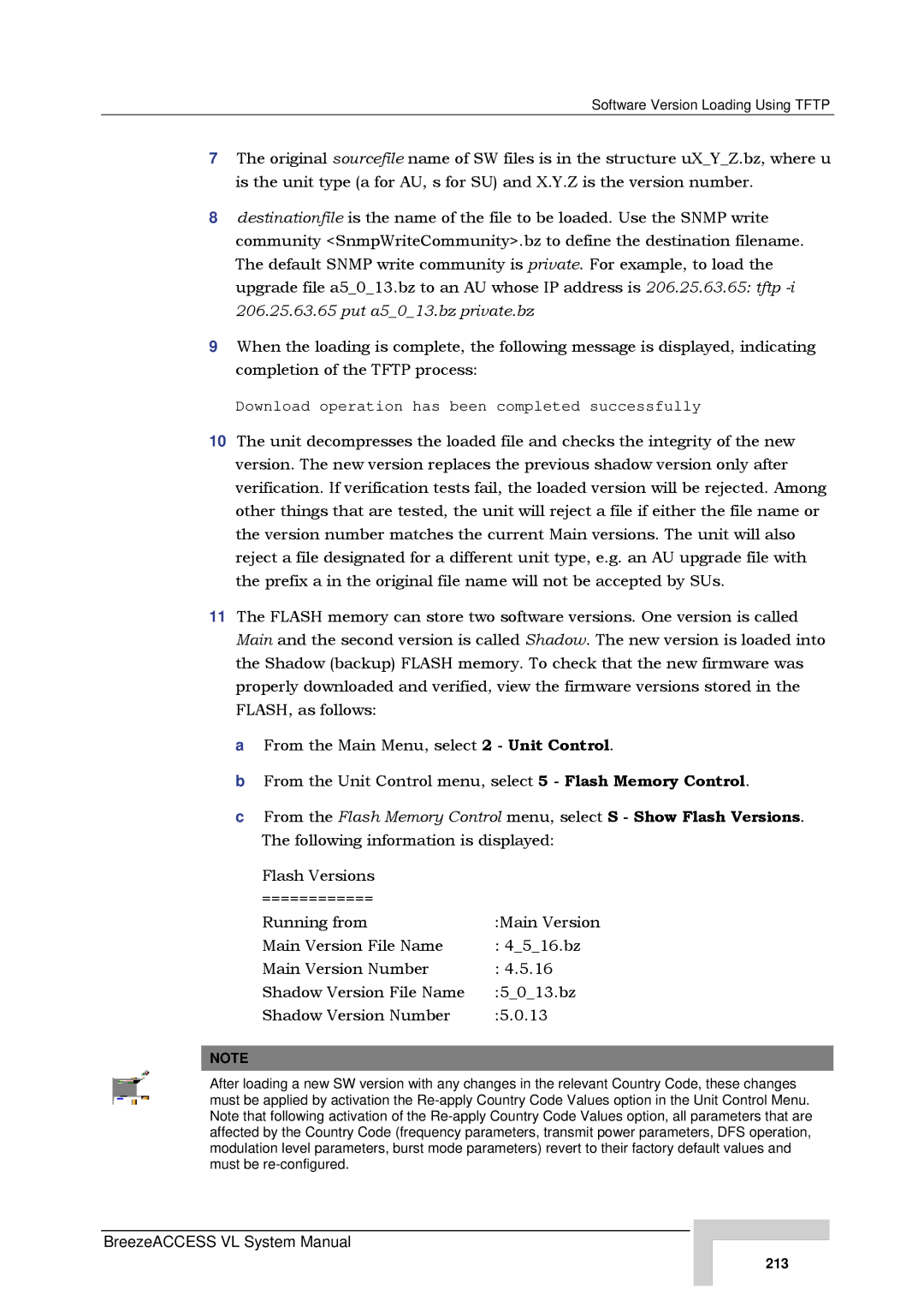
Software Version Loading Using TFTP
7The original sourcefile name of SW files is in the structure uX_Y_Z.bz, where u is the unit type (a for AU, s for SU) and X.Y.Z is the version number.
8destinationfile is the name of the file to be loaded. Use the SNMP write community <SnmpWriteCommunity>.bz to define the destination filename. The default SNMP write community is private. For example, to load the upgrade file a5_0_13.bz to an AU whose IP address is 206.25.63.65: tftp
9When the loading is complete, the following message is displayed, indicating completion of the TFTP process:
Download operation has been completed successfully
10The unit decompresses the loaded file and checks the integrity of the new version. The new version replaces the previous shadow version only after verification. If verification tests fail, the loaded version will be rejected. Among other things that are tested, the unit will reject a file if either the file name or the version number matches the current Main versions. The unit will also reject a file designated for a different unit type, e.g. an AU upgrade file with the prefix a in the original file name will not be accepted by SUs.
11The FLASH memory can store two software versions. One version is called Main and the second version is called Shadow. The new version is loaded into the Shadow (backup) FLASH memory. To check that the new firmware was properly downloaded and verified, view the firmware versions stored in the FLASH, as follows:
a From the Main Menu, select 2 - Unit Control.
b From the Unit Control menu, select 5 - Flash Memory Control.
cFrom the Flash Memory Control menu, select S - Show Flash Versions. The following information is displayed:
Flash Versions |
|
============ |
|
Running from | :Main Version |
Main Version File Name | : 4_5_16.bz |
Main Version Number | : 4.5.16 |
Shadow Version File Name | :5_0_13.bz |
Shadow Version Number | :5.0.13 |
NOTE
After loading a new SW version with any changes in the relevant Country Code, these changes must be applied by activation the
BreezeACCESS VL System Manual
213
